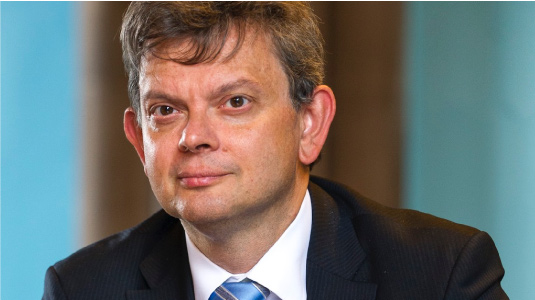SFC news published since 2018. See SFC archived content for earlier news articles.
University of Glasgow Principal, Professor Sir Anton Muscatelli, writes about the institution’s response to racism on campus.


Last week, the University of Glasgow published a major new report ‘Understanding Racism, Transforming University Cultures’, prompted by a study from the Equality and Human Rights Commission (EHRC) into racial harassment faced by Black, Asian and Minority Ethnic students and staff in UK universities.
The resulting report is a difficult read and outlines very challenging experiences of racism or racial injustice faced by staff and students. In response, we have resolved to act decisively – publishing a comprehensive action plan to go alongside the report.
I know that colleagues in the Higher Education sector will also be thinking about these issues at their own institutions and may wish to learn from the University of Glasgow’s experiences in bringing this report together.
Firstly, it was vitally important for us to have an open and honest dialogue with our community and to be clear that we would listen to their experiences. I’d like to put on record my thanks to everyone who took part in this study and who spoke bravely, openly and honestly about their experiences, as well as to my colleagues who worked so hard to bring the report together.
And while listening is important, it is not enough in itself. It is vital to be clear to those who come forward and share their experiences that positive action will stem from it. That is why, alongside the report, we published a wide-ranging action plan setting out how we intend to solve the problems highlighted.
These actions are also not merely general aspirations for improvement – but concrete methods by which we intend to make our university community a better, more inclusive place, many of which have been directly assigned to myself and my members of my Senior Management Group.
On a matter as important as this, it is crucial that university leadership is at the forefront of action, and as Principal, I intend to take responsibility for ensuring we see positive change.
Finally, for university leaders it is not enough simply to acknowledge that the problem exists, or even to set out concrete actions to stop it. We have to recognise and apologise for the harms that have been caused by racism in our institutions. Our colleagues and our students who have been impacted deserve nothing less.
The original EHRC Report was clear: the Higher Education sector must address this issue. My own university’s investigation shows that we have no less and no more of a problem than other institutions and it falls to all of us to address the issues raised by the report. We hope that others will follow our response to the EHRC challenge.
Indeed, tackling racism is clearly a problem that extends far beyond universities and into wider society. It is a problem for all of us to solve collectively – but that can never diminish our individual and institutional responsibilities to act where we can.
And, as universities, we have a duty to lead from the front. We are anchor institutions in our communities and cities, playing a huge social and cultural role, and at our best can act as agents of equality and social cohesion.
What this report – and the Equality and Human Rights Commission work which it stemmed from – shows is that we have a way to go before we can truly be said to be at our best for all our colleagues and students.
To be the institution we aspire to be, we were clear that we had to act and act decisively. Our report and accompanying action plan offer us a way forward to deliver real and meaningful change.
I am determined that we will bring that change about at the University of Glasgow, and look forward to working with colleagues across the sector as a whole.

